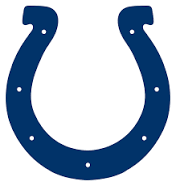Jacksonville Jaguars
- Paul Grange

- Sep 27, 2025
- 4 min read

When Jacksonville landed an NFL franchise in the 1990s it hadn’t really been on anyone’s footballing radar. A city better known for shipping, military bases, and Southern hospitality than big-league sport, it surprised the country by becoming the home of the Jacksonville Jaguars. But the name, the badge, and the story behind them reveal why this Florida city was deserving of the honour… so let’s #GetTheBadgeIn and find out more about the Jaguars.
Back in 1991, before the team took the field, locals were invited to choose the name. The finalists were Sharks, Stingrays, and Jaguars. Sharks felt overused, Stingrays lacked bite, but Jaguars… Jaguars roared. A big reason was the connection with Jacksonville Zoo’s resident jaguar, a local favourite. Sleek, powerful, and rare, the jaguar became the perfect symbol of the city’s ambitions. When the team debuted in 1995, they did so with teal, black, and gold colours to match the animal’s. The snarling jaguar head logo finished the look, and soon enough the crowd had its own wild companion: Jaxson de Ville, the outrageous mascot known for zip-lining and bungee jumping into games – and routinely stirring up chaos by aggravating opposition players and fans.
Jacksonville itself isn’t just another sun-soaked Florida city. It’s the largest city by land area in the continental United States, sprawling across 875 square miles after merging with Duval County in 1968. When the settlement was first established in the early 1820s, Florida had just become a U.S. territory. Andrew Jackson had briefly served as the territory’s military governor in 1821, and the town’s founders chose to honour him by naming the new community “Jacksonville.”
Nearly a million people live there, with another 700,000 in the surrounding metro area. The city sits on the St. Johns River, close to the Atlantic, with 22 miles of beaches giving it both a port and a playground. Its economy is powered by JAXPORT, finance, insurance, and most of all, the military. Naval Station Mayport and Naval Air Station Jacksonville make the city one of America’s greatest military hubs. And it’s not just the U.S. Navy who’ve left a mark. Many Royal Navy submariners know Jacksonville well. With their Trident missile systems maintained in the U.S., crews have enjoyed more than a few memorable runs ashore in Jacksonville. Many sailors came back to Britain with teal shirts in their bags and stories of catching the Jaguars live while on leave. For them, Jacksonville is a second home — and the Jags a second team.
The city itself was founded in 1822 and named after Andrew Jackson — soldier, general, and later the seventh President of the United States. Jackson, nicknamed “Old Hickory”, was known for his toughness and for serving as the first military governor of Florida. Naming the city after him was a statement of grit and resolve, qualities that still echo in the team that now bears Jacksonville’s name on the national stage.
The Jaguars’ story took another, UK directed, twist in 2012 when they were bought by Shahid “Shad” Khan, a Pakistani-born American billionaire who also owns Fulham Football Club in London. Khan’s global outlook fitted perfectly with the NFL’s ambitions, and under his ownership the Jaguars signed a long-term deal to play at Wembley Stadium every season. No other team has embraced London quite like them, making the Jags an embryonic “London franchise” and further strengthening the British connection that runs through their recent history.
And if their international ambitions weren’t bold enough, their home ground makes sure no one forgets the Jaguars’ flair for the unusual. EverBank Stadium is the only NFL venue where you can watch the game from inside a swimming pool. High above the field, around the corporate box suites, sit glass-fronted pools where fans can lounge in the water with a drink in hand, watching touchdowns splash down in front of them. It’s a Florida twist on luxury that sums up the Jaguars perfectly: unapologetically different.
Khan’s vision, though, goes well beyond the pool decks. He has drawn up plans to completely redevelop the stadium and the surrounding district in downtown Jacksonville — turning it into a year-round hub of entertainment, business, and community. Dubbed the “Stadium of the Future,” the project aims to secure the Jags’ long-term future in the city while putting Jacksonville on the map as a genuine NFL destination.
Jacksonville itself has always been a city of character. It mixes Southern roots with a Florida coast vibe. Music runs deep here — jazz, blues, and later rock bands like Lynyrd Skynyrd and the Allman Brothers. Sport too is central: every year, the Florida–Georgia college football game turns the city into a festival of tailgates and rivalry, and just down the road at Ponte Vedra Beach, the TPC Sawgrass course hosts The Players Championship, one of golf’s great tournaments. But for all that, the Jaguars remain the city’s main badge of pride.
The Jaguars may not yet have the deepest trophy cabinet, but their identity runs strong: a unique name born of local choice, a bold colour scheme that set them apart from day one, a mascot with mischief, an owner with global ambitions, a home ground with poolside seats, and a city whose history brings together presidents, submariners, Londoners, and fans across the oceans.







Comments